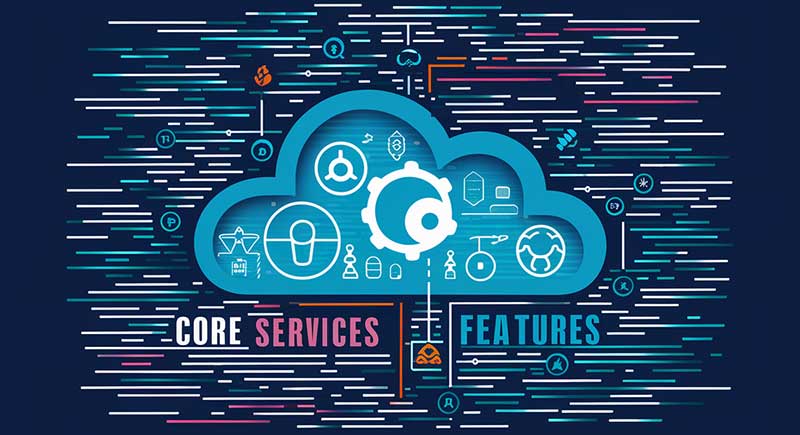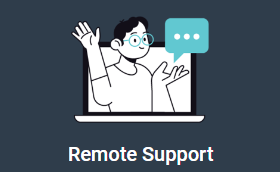The cloud computing landscape has rapidly evolved, becoming a cornerstone for modern business operations. Among the leading providers, Amazon Web Services (AWS), Microsoft Azure, and Google Cloud Platform (GCP) dominate the market. Each offers a unique set of features, capabilities, and pricing models, making them suitable for different industries, including healthcare, academia, transportation, and residential rental/condo/timeshare complexes. This article explores the key differences between these platforms and their specific benefits across these sectors.
1. Overview of AWS, Azure, and GCP
Amazon Web Services (AWS): Launched in 2006, AWS is a comprehensive cloud platform offering a wide range of services, including computing power, storage, databases, analytics, machine learning, and more. AWS is known for its extensive global network of data centers, which provides high availability and redundancy.
Microsoft Azure: Azure, launched in 2010, is a cloud platform by Microsoft offering services similar to AWS, including computing, analytics, storage, and networking. Azure is deeply integrated with Microsoft’s suite of products, making it a natural choice for businesses already invested in Microsoft technologies like Windows Server, SQL Server, and Office 365.
Google Cloud Platform (GCP): GCP, introduced in 2008, leverages Google’s infrastructure to provide cloud services, including computing, storage, data analytics, and machine learning. GCP is known for its strong focus on data analytics and machine learning, utilizing technologies like TensorFlow and BigQuery.

2. Core Services and Features Comparison
Compute:
- AWS: Offers a broad range of computer services, including EC2 for virtual servers, Lambda for serverless computing, and ECS/EKS for container orchestration.
- Azure: Provides virtual machines, Azure Functions for serverless computing, and Azure Kubernetes Service (AKS) for container orchestration.
- GCP: Features Compute Engine for virtual machines, Cloud Functions for serverless computing, and Google Kubernetes Engine (GKE) for container orchestration.
Storage:
- AWS: Offers S3 for object storage, EBS for block storage, and Glacier for long-term archival.
- Azure: Provides Blob Storage for object storage, Azure Disks for block storage, and Azure Archive Storage.
- GCP: Includes Google Cloud Storage for object storage, Persistent Disks for block storage, and Nearline/Coldline for archival storage.
Networking:
- AWS: Features include Virtual Private Cloud (VPC), Elastic Load Balancing, and Direct Connect for private connectivity.
- Azure: Offers Virtual Network, Azure Load Balancer, and ExpressRoute for private connections.
- GCP: Provides Virtual Private Cloud (VPC), Cloud Load Balancing, and Dedicated Interconnect.
Data Analytics:
- AWS: Includes services like Redshift for data warehousing, EMR for big data processing, and Athena for querying data in S3.
- Azure: Features Azure Synapse Analytics, HDInsight for big data, and Azure Data Lake Analytics.
- GCP: Offers BigQuery for data warehousing, Dataflow for stream and batch processing, and Dataproc for Hadoop/Spark.
Machine Learning:
- AWS: Amazon SageMaker for building and training models, along with various AI services like Rekognition and Polly.
- Azure: Azure Machine Learning for model development and deployment, and Cognitive Services for pre-built AI models.
- GCP: TensorFlow on GCP, AutoML for custom models, and a range of APIs for AI services.
3. Pricing Models and Cost Management
AWS: AWS operates on a pay-as-you-go model, offering flexible pricing with no upfront commitments. It also provides reserved instances for long-term savings and spot instances for cost-effective, short-term computing needs. AWS offers various cost management tools, including the AWS Cost Explorer and AWS Budgets.
Azure: Azure also follows a pay-as-you-go pricing structure, with the option for reserved instances and spot pricing. Microsoft offers cost management tools like Azure Cost Management and Pricing Calculator, which help customers optimize their cloud spending.
GCP: GCP’s pricing model is pay-as-you-go, with discounts for sustained use and committed use contracts. Google provides cost management tools like the Google Cloud Pricing Calculator and Billing Reports, allowing users to track and manage their expenses effectively.

4. Security and Compliance
AWS: AWS provides robust security features, including data encryption, network firewalls, and compliance with various industry standards (e.g., HIPAA, GDPR, ISO/IEC 27001). AWS also offers a Shared Responsibility Model, where AWS manages security of the cloud, while customers manage security in the cloud.
Azure: Azure’s security features include encryption, identity and access management, and advanced threat protection. It complies with a wide range of regulations, including GDPR, HIPAA, and ISO/IEC 27001. Azure also provides the Shared Responsibility Model for security.
GCP: GCP focuses on security with features like data encryption, Identity and Access Management (IAM), and advanced network security. It adheres to industry standards such as HIPAA, GDPR, and ISO/IEC 27001. Google also offers a Shared Responsibility Model for security.

5. Integration and Ecosystem
AWS: AWS boasts a vast ecosystem of services and integrations, including seamless connectivity with third-party applications and tools. It supports various programming languages, frameworks, and development environments, making it a versatile choice for developers.
Azure: Azure’s ecosystem is tightly integrated with Microsoft’s suite of products, such as Windows Server, Active Directory, and Office 365. This integration makes it an attractive option for organizations already using Microsoft technologies. Azure also supports a wide range of programming languages and frameworks.
GCP: GCP is known for its strong data analytics and machine learning ecosystem, with seamless integration with Google Workspace and other Google services. It supports various programming languages and frameworks, making it a robust platform for developers focusing on data-intensive applications.
6. Industry-Specific Applications
Healthcare:
- AWS: AWS offers HIPAA-compliant services, making it a popular choice for healthcare providers. It provides solutions for electronic health records (EHR), telemedicine, and healthcare analytics.
- Azure: Azure’s compliance with healthcare regulations and integration with Microsoft Dynamics 365 makes it a strong choice for healthcare organizations. It offers tools for patient management, data analytics, and telehealth.
- GCP: GCP provides solutions for healthcare data analytics, genomics research, and healthcare AI. Its strong focus on data and machine learning makes it suitable for advanced healthcare IT applications.
Academic:
- AWS: AWS supports educational institutions with cloud solutions for research, learning management systems (LMS), and data storage. It offers grants and discounts for educational use.
- Azure: Azure provides solutions for virtual classrooms, research data management, and academic administration. It integrates well with Office 365, enhancing collaboration and productivity.
- GCP: GCP offers tools for data analysis, machine learning, and cloud-based learning platforms. It supports educational institutions with credits and resources for research and teaching.
Transportation:
- AWS: AWS offers solutions for fleet management, logistics, and traffic analysis. Its IoT services support connected vehicles and smart infrastructure.
- Azure: Azure provides tools for transportation management, predictive maintenance, and smart cities. It supports IoT and AI applications for real-time monitoring and optimization.
- GCP: GCP’s strengths in data analytics and machine learning make it ideal for transportation analytics, route optimization, and autonomous vehicle research.
Residential Rental/Condo/Timeshare Complexes:
- AWS: AWS offers solutions for property management, tenant portals, and smart building technologies. Its IoT services enable connected devices and energy management systems.
- Azure: Azure supports property management software, tenant engagement platforms, and smart building solutions. It integrates with Microsoft Dynamics for CRM and ERP functionalities.
- GCP: GCP provides tools for data analytics, tenant insights, and smart building applications. Its machine learning capabilities can be used for predictive maintenance and energy optimization.
7. Conclusion
Amazon Web Services (AWS), Microsoft Azure, and Google Cloud Platform (GCP) are leading cloud service providers, each offering unique strengths and capabilities. AWS is known for its extensive service offerings and global infrastructure, making it a versatile choice for a wide range of applications. Microsoft Azure stands out with its strong integration with Microsoft’s ecosystem and compliance with various industry standards, particularly beneficial for organizations using Microsoft products. Google Cloud Platform excels in data analytics and machine learning, leveraging Google’s expertise in these areas.
The choice between these platforms depends on the specific needs of the business, including the industry, existing infrastructure, and budget. Healthcare organizations may prioritize compliance and data security, making Azure or AWS attractive options. Academic institutions may benefit from GCP’s strong data analytics tools for research. The transportation industry can leverage the IoT and analytics capabilities of all three platforms, depending on specific requirements. Residential rental complexes may focus on smart building technologies and tenant management solutions, where all three platforms offer valuable tools.
Ultimately, the decision should be based on a thorough evaluation of the specific needs and goals of the organization, considering factors such as cost, performance, security, and integration capabilities. By understanding the strengths and differentiators of AWS, Azure, and GCP, businesses can make informed choices that align with their strategic objectives and drive innovation in their respective industries.
Need Help?
Clear Byte IT Service Provider offers expert guidance and consultation to help businesses navigate the complexities of choosing the right cloud service provider. With a deep understanding of the unique features and benefits of Amazon Web Services (AWS), Microsoft Azure, and Google Cloud Platform (GCP), Clear Byte provides tailored advice based on your specific business needs, industry requirements, and budget constraints. By evaluating your current infrastructure, future goals, and key considerations like scalability, security, and cost-efficiency, Clear Byte ensures you make an informed decision that aligns with your strategic objectives. Whether you’re in healthcare, academia, transportation, or residential rental management, Clear Byte’s comprehensive analysis and personalized recommendations empower your business to leverage the full potential of cloud computing.



